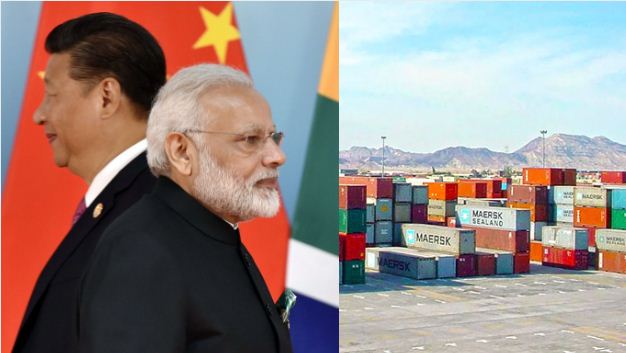In a major push to self-reliance or the ‘Aatmanirbhar Bharat’ campaign, India for the first time is manufacturing cargo containers via two state-owned heavy- engineering companies. The move is especially focused on making India independent, free from the dependency on China and other foreign players on the field.
All cargo containers in India were initially manufactured by foreign players, mostly, by China. China is the global leader in cargo containers and regularly wins the overall tenders to manufacture and supply containers all over the world. A major reason for this is the fact that Chinese containers are relatively cheaper.
According to Indian Express, the Container Corporation of India (CONCOR) which owns 85 per cent of the container movements market, has given the orders to Braithwaite and Bharat Heavy Electricals Limited, to accomplish the target of 1000 containers.
Dubai-based Transworld Group, promoted by Indian businessman Ramesh Ramakrishnan, has also signed an agreement with state-owned Sagarmala Development Company Ltd to build a cargo container manufacturing facility in Gujarat with an investment of about Rs 200 crore.
Yatish Kumar, chairman and managing director of Braithwaite said, “In China, they have integrated the container manufacturers and steelmakers, which gives them a huge advantage. Here that is not the case. We have to do a lot of backward integration. We are developing one by one. By the end of March, we will be able to provide the prototype.”
This is the first-ever container manufacturing project that India has initiated, thus, each component needs to be built from scratch. There are critical fragmentary, also such as corner casting and structural fragments like channels which officials termed as “odd design” especially for wagons and India’s premium steel and manufacturing companies do not show any interest in it. Therefore, to fill the vacuum, PSUs like Braithwaite are coming forward to set up a rolling mill to develop the desired designs.
The official further added that after the manifestation is complete and it will have to be tested by relevant testing agencies and certified before it can be installed.
The Modi government’s ‘Aatmanirbhar Bharat’ campaign has seen many progressive developments such as National Infrastructure Pipeline (NIP) worth Rs 110 lakh crore, other projects like submarine optical fibre cable from Chennai to Port Blair, the Atal Tunnel, and the Char Dham Project. The belief of self-reliance is forging the national infrastructure projects forward.
The relations between India and China turned bitter after the Galwan valley clash between the Indian Army and the Chinese PLA. Therefore, to promote indigenous businesses and end its dependency on China, India decided to make containers on its own, giving a major boost to ‘Aatmanirbhar Bharat.’
























